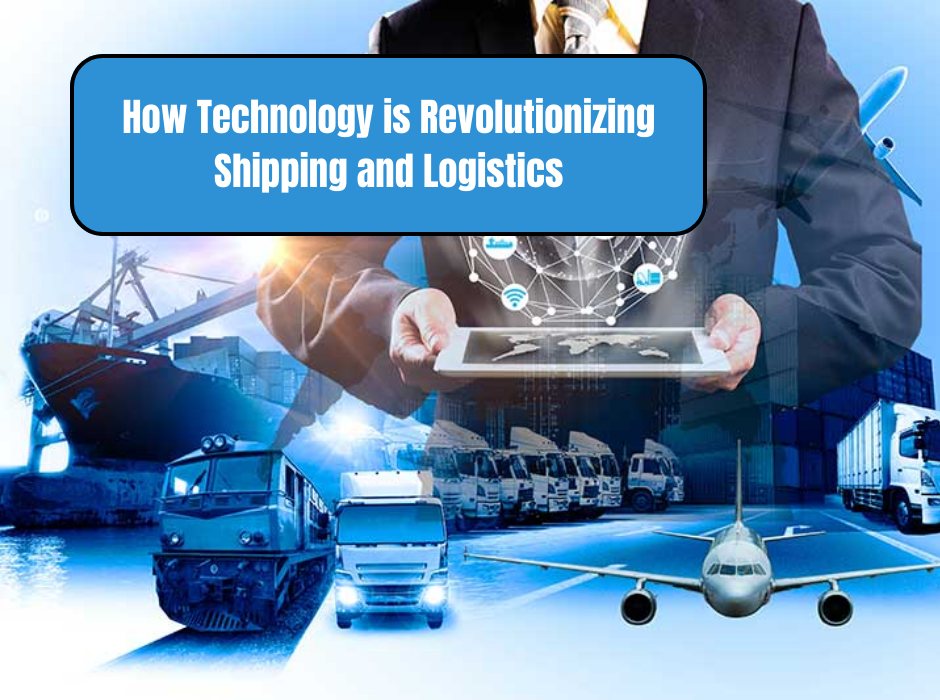Technology is playing a transformative role in revolutionizing the shipping and logistics industry. From optimizing supply chains to enhancing last-mile delivery, emerging technologies such as artificial intelligence (AI), Internet of Things (IoT), and blockchain are driving innovation and efficiency. Let’s explore these advancements in detail.
In today’s globalized world, efficient and reliable shipping and logistics are critical for businesses to thrive. Technology has emerged as a game-changer in this industry, enabling companies to streamline operations, reduce costs, and improve customer satisfaction. Let’s take a closer look at how technology is revolutionizing shipping and logistics.
Supply chain optimization is a key focus area for technology-driven advancements. The Internet of Things (IoT) has enabled real-time tracking and monitoring of goods throughout the supply chain. Smart sensors attached to shipments collect data on location, temperature, humidity, and other relevant factors. This data helps optimize inventory management, reduce delays, and improve overall efficiency.
Additionally, big data analytics has become a crucial tool for supply chain optimization. Advanced analytics techniques process large volumes of data generated by supply chains, enabling companies to identify patterns, predict demand, optimize routing, and make informed decisions. By leveraging this data-driven approach, organizations can streamline operations, reduce costs, and improve customer satisfaction.
Artificial Intelligence (AI) is another technology revolutionizing shipping and logistics. AI-powered algorithms can analyze historical data and external factors to generate predictive insights. This enables companies to forecast demand accurately, optimize inventory levels, and minimize stockouts. As a result, businesses can improve inventory management, reduce waste, and enhance overall operational efficiency.
Route optimization is another area where AI is making a significant impact. AI algorithms consider various factors such as traffic conditions, weather, and delivery deadlines to optimize routing and scheduling, leading to faster and more efficient deliveries. These optimizations result in cost savings, improved customer satisfaction, and a greener approach to logistics.
Furthermore, AI models can analyze customer behavior, market trends, and historical data to improve demand planning accuracy. By better understanding customer preferences and anticipating market trends, organizations can optimize production, reduce waste, and ensure products are available when and where they are needed.
Last-mile delivery, the final leg of the supply chain, is a critical area where technology is driving significant improvements. Delivery drones, for instance, are unmanned aerial vehicles that are being tested and deployed for last-mile deliveries in certain areas. Drones offer faster and more flexible delivery options, particularly for lightweight and time-sensitive items. They can reach remote locations or navigate through congested urban areas, bypassing traditional road transportation limitations.
Autonomous vehicles are also transforming last-mile delivery. Self-driving trucks and delivery robots are being developed and tested, promising increased efficiency and reduced labor costs. These vehicles can operate 24/7, navigate through predetermined routes, and make deliveries without the need for human intervention. The adoption of autonomous vehicles holds the potential to revolutionize the industry by improving delivery speed, reducing costs, and enhancing safety.
In addition to the physical aspects of last-mile delivery, technology is enhancing delivery management systems. Advanced software systems integrate real-time data from various sources to optimize last-mile delivery. These systems assign routes to drivers based on optimized algorithms, track vehicles in real-time, provide delivery updates to customers, and facilitate effective communication between drivers and dispatchers. By leveraging technology, organizations can streamline their last-mile delivery processes, improve customer satisfaction, and enhance overall operational efficiency.
Blockchain technology is also making its mark in the shipping and logistics industry. Blockchain provides a decentralized and immutable ledger that tracks every transaction and movement of goods. This creates transparency and traceability in supply chains, reducing the risk of fraud, counterfeiting, and errors. By leveraging blockchain, companies can gain greater visibility into their supply chains, identify bottlenecks or inefficiencies, and enhance overall supply chain security.
Delivery management systems powered by advanced software integrate real-time data to optimize last-mile delivery operations. These systems assign optimized routes, track vehicles, provide delivery updates to customers, and improve communication between drivers and dispatchers. These technological advancements streamline last-mile delivery processes, enhancing customer satisfaction and operational efficiency.
Blockchain technology provides transparency and traceability in supply chains, ensuring the authenticity and integrity of transactions. It minimizes the risk of fraud, counterfeiting, and errors by creating a decentralized and tamper-proof ledger. Through blockchain, companies gain greater visibility into their supply chains, identify bottlenecks or inefficiencies, and enhance overall supply chain security.
Moreover, technology-driven advancements have significant benefits for the shipping and logistics industry. They lead to cost savings, improved customer satisfaction, reduced environmental impact, and enhanced overall operational efficiency. By leveraging emerging technologies, companies can optimize supply chains, minimize errors and delays, and offer faster and more reliable delivery services.
However, it’s important to acknowledge that the adoption of these technologies also presents challenges. Implementing and integrating new technologies require investment in infrastructure, training, and data security. Additionally, there may be regulatory and legal considerations to address, especially concerning the use of autonomous vehicles and data privacy in logistics operations. Overcoming these challenges and ensuring a smooth transition to technology-driven solutions requires careful planning, collaboration, and adaptability.
In conclusion, technology, including AI, IoT, and blockchain, is revolutionizing the shipping and logistics industry. These emerging technologies optimize supply chain operations, enhance last-mile delivery, and improve overall efficiency. By leveraging real-time data, predictive analytics, and automation, companies can streamline their operations, reduce costs, and provide faster, more reliable, and customer-centric services. Embracing these advancements is essential for businesses to stay competitive in an increasingly digital and connected world.



